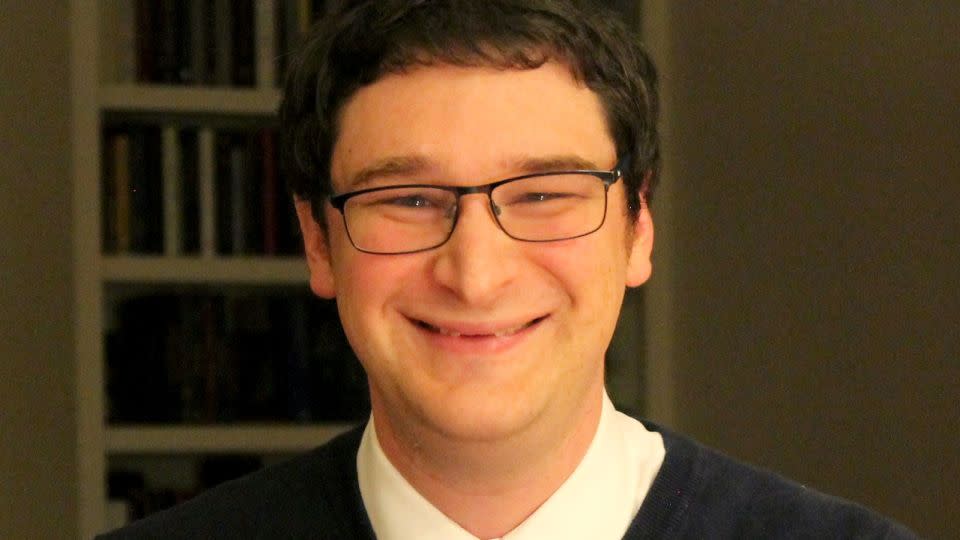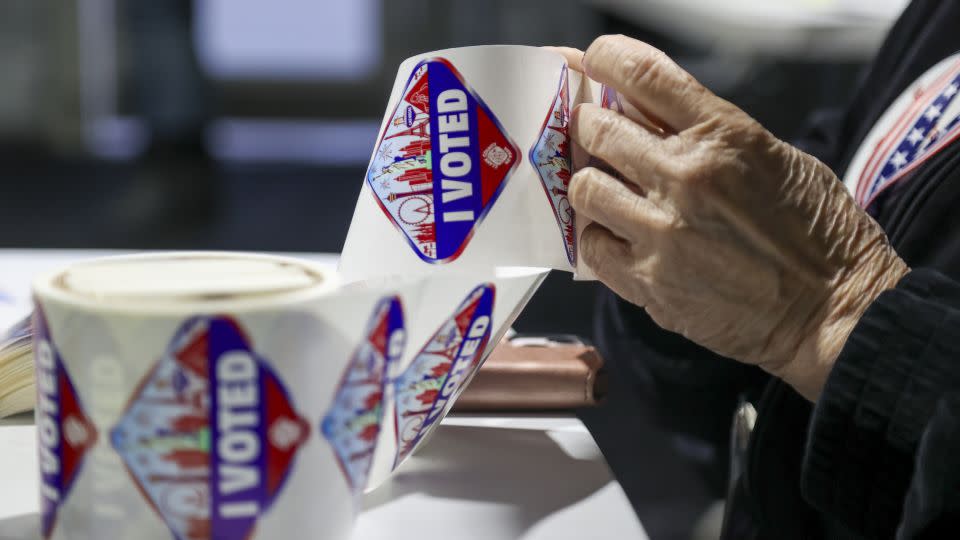Opinion: The chaos of Nevada’s primary shows the nominating process has to change
- Oops!Something went wrong.Please try again later.
- Oops!Something went wrong.Please try again later.
Editor’s note: Patrick T. Brown is a fellow at the Ethics and Public Policy Center, a conservative think tank and advocacy group based in Washington, DC. He is also a former senior policy adviser to Congress’ Joint Economic Committee. The views expressed in this piece are his own. View more opinion on CNN.
Two Nevada contests for the Republican presidential nomination on two separate days this week, each with only one major candidate on the ballot. With apologies to the band Chicago, voters might be forgiven for asking: Does anybody really know what day it is? Does anybody really care? What’s the point of primaries if the leading candidates are now bigger than the parties and the process feels more like a coronation than a contest?

In Nevada, the state-mandated primary on Tuesday offered former South Carolina Gov. Nikki Haley a chance to claim her first “win” of the 2024 election cycle. Haley was the only major candidate left in the nonbinding primary, but she lost embarrassingly to “none of these candidates,” CNN projects. (Nevada’s Democratic primary was Tuesday as well, with CNN projecting President Joe Biden as the winner.)
Then, on Thursday, the state’s Republican Party will hold a caucus. Again, there will be only one major name voters can choose — this time, former President Donald Trump.
Republicans in the state have chosen this convoluted system in response to a new state law that required a primary after previously using a caucus system. Democrats adopted the primary, but the GOP instead chose a caucus to allocate delegates. The upshot is that the presumptive caucus winner, Trump, will walk away with all the state’s 26 delegates.
It’s the latest complication in the ungainly mess that the presidential nomination process has become. From the Democratic National Committee’s internecine battle with states such as New Hampshire over its early primary status to make way for more diverse states such as South Carolina to Trump’s historically anomalous yet politically savvy decision to skip the primary debates, this year has underscored the creakiness of the presidential primary system.
Paradoxically, the primaries — and the parties themselves — maybe would benefit from a little less democracy.

Don’t forget — the current approach is younger than the floppy disk. Following the unrest at the 1968 Democratic National Convention in Chicago, the McGovern-Fraser Commission guided the Democrats toward a new approach that would place a heavier weight on primary votes from the general public, rather than support from party delegates, in choosing the nominee. Republicans followed suit in 1976.
While intended to give voters more say in the nomination process, many scholars agree that the democratization of the presidential primary has contributed to increased political polarization. Single-issue groups, from gun rights to abortion, have taken a larger role in the primary process, marginalizing the influence of party officials to watch out for their institution’s long-term interest. Conventions, once a site of wheeling and dealing between different factions in a party to choose a nominee, are now public relations showcases — vestigial appendages that bear little resemblance to their original function.
Without reform, primaries in which voters aren’t given real choices — or in which candidates with high name recognition flaunt the established rules — may soon follow that path to obsolescence.
With two historically unpopular candidates in Trump and Biden seemingly headed for a repeat of 2020’s contest, both the Republican and Democratic parties had some incentives to shift strategy. Not nominating Trump on the one hand, or Biden on the other, could have given either party the ability to turn the page on the era of baby boomer electoral dominance and offer general election voters a fresh face to tackle contemporary challenges.
But neither party is strong enough to act in its own long-term self-interest, beholden to the fundraising might and political firepower each leading contender brings to the table. As this year’s slog showcases, a primary system with no authority other than the ballot box can lead to misaligned incentives for the health of each party — and our democracy.
All primaries do is offer a democratic way of determining who is the most popular candidate among voters who show up on a random day months before Election Day. That can be — but is certainly not always — the same candidate who will do well when voters in a general election are paying attention. Primaries attract the most ideologically committed voters, who in turn choose candidates who are more inclined to appeal to the edges rather than voters in the middle. Taking some democracy out of the primary process could mean more meaningful competition in general elections — over the long term, a win for small “d” democracy.
We’ve seen some alternatives to what a back-to-the-future approach to nominating processes could look like. “Superdelegates,” or party officials with an automatic vote in the delegate count, used to be empowered to act in ways that didn’t automatically follow the will of the voters. But they have been reined in over time. Parties could resurrect their original function, rather than having them serve as a rubber stamp.
Another approach was demonstrated in 2021 when Virginia Republicans eschewed a direct primary for a nominating convention. There, party leaders selected Glenn Youngkin as their most electable gubernatorial candidate — in retrospect, a savvy choice.
The smoke-filled rooms of the conventions of yesteryear aren’t coming back. But finding ways to resurrect some of that spirit — with nominees at least partially selected with an eye toward their ability to communicate with voters outside the most committed activists — could be a way of getting ourselves out of the farce of primary elections that purport to offer voters influence but instead offer confusion.
For more CNN news and newsletters create an account at CNN.com

